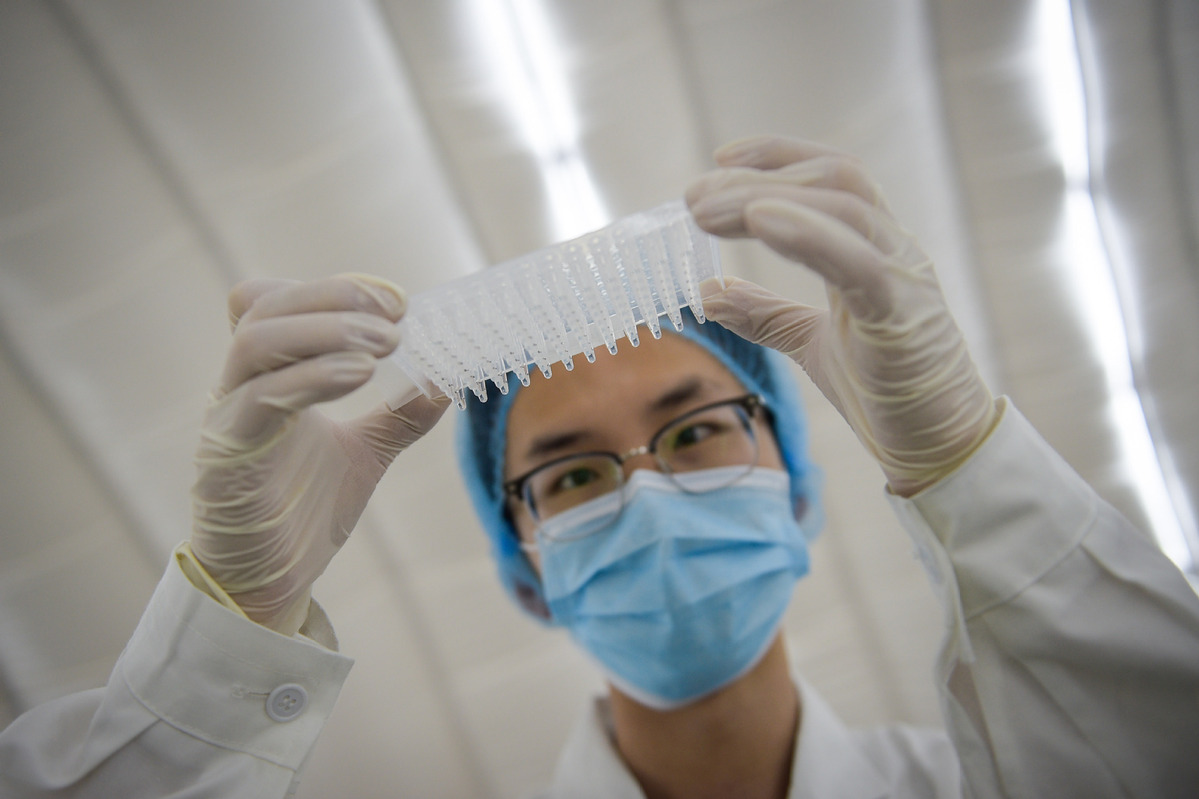
A medical worker checks nucleic acid samples at the Huoyan, Beijing's first air-inflated testing lab, on July 1, 2020. [Photo/Xinhua]
The prevalence of a genetic mutation of the novel coronavirus will not hamper testing for the virus and may have little impact on the effectiveness of COVID-19 vaccines under development, a senior expert said.
The mutation, called G614, which is now the dominant form in the global COVID-19 pandemic, is more likely to infect people but does not seem to cause more severe illness than the original pathogen, according to research published in the journal Cell last week. The mutation caused changes in the virus' spike protein, through which it infects human cells.
G614 was rare in the early stage of the outbreak, before March, but represented about 80 percent of virus samples collected globally by the end of May, according to the research. The transition from D614, the previous dominant form of the novel coronavirus, began in Europe, followed by North America, Oceania and Asia, according to research findings.
More than 11 million confirmed COVID-19 cases and more than half a million deaths had been reported globally as of Sunday, according to the World Health Organization. The global pandemic has shown no signs of abating yet. In China, the epidemic has been contained since March due to strict epidemic prevention and control measures.
Zhang Wenhong, director of the Department of Infectious Diseases at Huashan Hospital in Shanghai, said D614 is still the dominant variant in China, due to strict measures taken to prevent and control the importing of COVID-19 cases.
Although laboratory studies have shown that the G614 mutation increases the ability for the novel coronavirus to infect cells, it is uncertain whether it actually is more infectious or toxic to humans, he said, adding that more research and monitoring is needed.
The mutation does not hamper nucleic acid testing for the coronavirus, the most common testing method, as it is targeted at different genetic segments of the virus, Zhang said.
Meanwhile, the mutation will not significantly reduce the effectiveness of COVID-19 vaccines under research, he said.
"There is no evidence yet to show that the mutation will interfere with existing treatment therapies for COVID-19," Zhang said.
"However, such a mutation and its possible impact should be taken into consideration in the design of any vaccine or treatment therapy before we can have a better understanding of the role of the mutation in natural infection of SARS-Cov-2."
Although the development of COVID-19 vaccines has been advancing rapidly, it is still unclear about the actual effectiveness of the vaccines once they are available for use, and much remains unknown about the novel coronavirus, Gao Fu, director of the Chinese Center for Disease Control and Prevention, said in an earlier interview.
(By WANG XIAODONG | CHINA DAILY)







